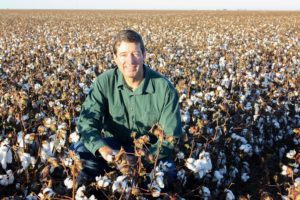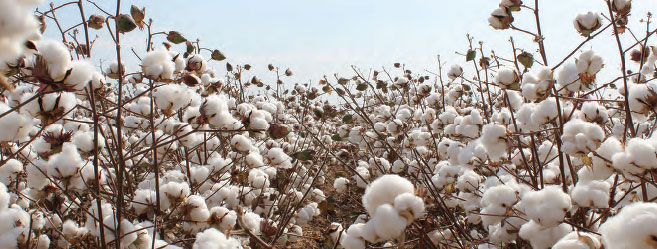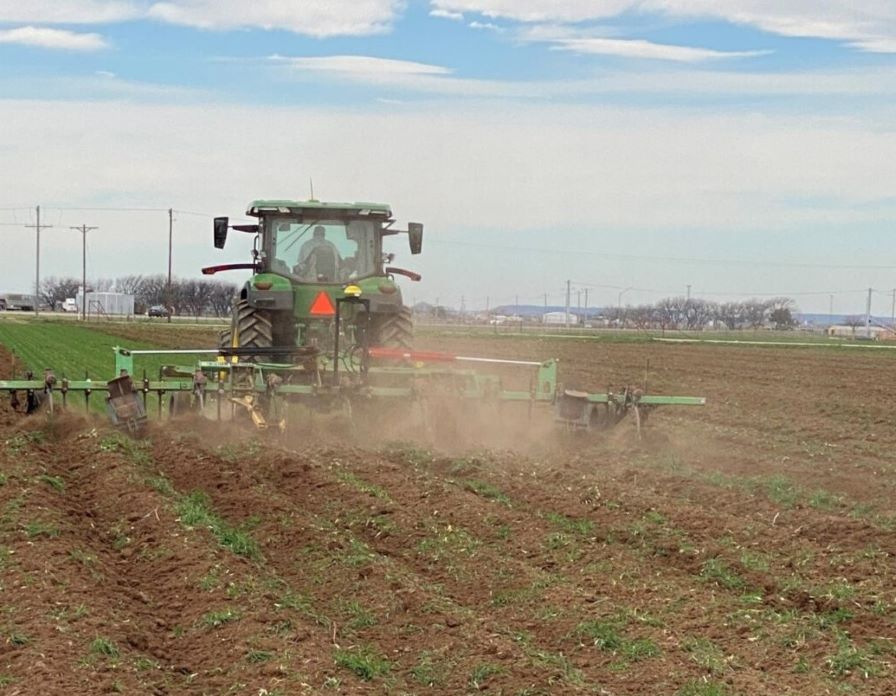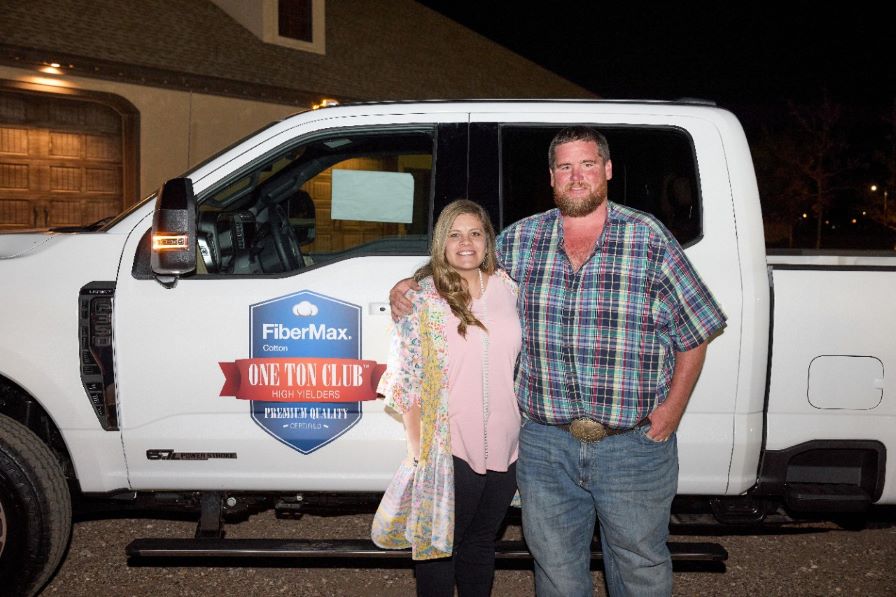Cotton’s Tireless Caretaker
From Cotton Grower Magazine – January 2017
Like many in the farming industry, Barry Evans was born into agriculture. He took a lot of lessons from his parents and role models within the industry – both on the farm and in the world at large.
At a young age, he took note of his father’s involvement in the beet industry – particularly in helping to craft legislation that could impact agriculture. It inspired him to commit himself to a lifetime of work on behalf of his own industry – cotton.
That is the reason Evans sat in the lobby of a Memphis hotel, eating from a breakfast buffet on a brisk Thursday morning – despite the fact that Memphis is 800 miles away from his family and a crop that still needed harvesting. Evans was in the Bluff City for less than 24 hours, popping in briefly to take care of important – though assuredly tedious – budget work on behalf of the National Cotton Council.
As the NCC secretary treasurer, this is the kind of trip Evans knew he would be making when he stepped into larger roles within the Council. He does not complain about the added workload.
“When I got started I just wanted to help,” Evans said. “I never dreamed about being as involved like this in the Council. I’ve done what I could over the years – when the kids were younger, I tempered what I would do, as far as association work. But now that they’re grown up a little and I have the time, I don’t mind making these type of trips at all.”
Evans’ actions back up his declaration that he “doesn’t mind” the extra workload he carries on behalf of the industry. Over the years, in addition to his work with the NCC, he has served as a Texas state chairman of the American Cotton Producers and as president of the Cotton Foundation. In addition, he is a past president of Plains Cotton Growers, and currently sits on the Plains Cotton Improvement Program committee. He has worked on the Cotton Board and is a past chairman of the Northern High Plains Boll Weevil Eradication Program Advisory Committee.
In addition, Evans is active with the Texas Alliance for Water Conservation and is a graduate of the Texas Agricultural Lifetime Leadership program. He serves on the Swisher County Farm Bureau board.
It’s that type of tireless dedication to the industry that has earned Evans the respect of so many of his peers – from the dirt roads around Kress, TX, to the board rooms in upscale hotels and offices around the Cotton Belt. For his selfless dedication to the betterment of the American cotton industry – on a local, regional and national level – Barry Evans has been awarded the 2016 Cotton Grower Cotton Achievement Award.
Home On the Farm
Cotton wasn’t always a major part of Barry Evans’s crop mix – it played a minor role on the family farm when he was a child, and it remained in a secondary role when he returned as an adult. In 1992, Barry returned to his family’s farm in Kress, TX, after graduation from West Texas A&M and a short stint in the business world.
“We used to grow a pretty diverse mix of crops back then,” Evans says. “We used to grow a lot of corn and sorghum and sugar beets. Then when sugar beet disease became such a big problem, cotton became our major crop. We looked at the financials and it became pretty obvious that cotton was what worked in our area, and also we saw the rotational benefits of cotton and sorghum or cotton and wheat.”
Today Evans farms close to 4,000 acres, with about half of that in cotton. Like most High Plains producers, water is a valuable commodity for him. Only around 20% of his acreage is irrigated, and he only waters his cotton. For the most part, it seems, Evans is set in his ways when it comes to his on-farm practices. But it wasn’t so long ago that he made drastic changes to his cropping system.
In 1996, on Mother’s Day, his wife Lindy alerted him to an alarming problem.
“My wife said ‘The dirt is starting to blow on this field outside.’ I didn’t tell her this but I thought ‘What does this city girl know about the dirt blowing? It wasn’t blowing 15 minutes ago, it won’t be blowing now.’ Well, I looked out and sure enough it was,” he says, with a soft chuckle. “She said I’m not a dumb city girl! I know what a sand storm looks like!’
“I went out and fought the sand but we lost a significant portion of our crop, and I decided we’ve got to do something different,” Evans says.
After doing his research, he settled on the practice of no-till. It was a major change for his long-established family farm, and it didn’t come without challenges. The first year he tried it, the weeds overtook his crop.
“We had a mess. It was a wreck. But right after that, we got Roundup Ready cotton, and that allowed the no-till to work, and through that transition I was able to go no-till and that’s when I went to a cotton and sorghum rotation,” Evans said. “With sorghum, if you don’t get enough organic matter with cotton, you get enough out of the sorghum to stop the blowing.”
Today Evans preaches the gospel of no-till whenever he gets the chance. “I could tell you about all the benefits of no-till,” he says, “but you probably don’t have enough time for me to touch on all the good things it does for my farm.”
Association Champion
As if 4,000 acres and a young family weren’t enough to keep him busy, Evans began volunteering his time in service organizations like Plains Cotton Growers Association and the National Cotton Council. Evans says he got involved in association work after watching the men he admired as a youngster – men like his father, Billy.
“My dad served on the Sugar Beet Board, and so I started watching how important sugar beet legislation was for the industry, and how it took people to fight for and advocate for the industry to make it happen,” Evans recalls. “A great example of a person I watched was Bill Clevenger. I saw that what they did made a difference and how this legislation that the industry desperately needed doesn’t just happen in a vacuum.”
From the start, Evans threw himself wholeheartedly into advocacy work on behalf of agriculture. At the encouragement of his friend Larry Nelson, Evans got involved with Plains Cotton Growers.
“Barry Evans is one of those quiet, contemplative people who leads effectively while considering all viewpoints,” says Steve Verett, executive vice president of Plains Cotton Growers. “He’s a calm, steady force in any group, and when he speaks, people listen because his suggestions and sound advice are always well thought out.
“One of Barry’s many unique qualities is his ability to identify with a wide range of people, whether it’s his fellow producers at the gin, industry leaders at a meeting, or journalists gathering in his field to talk about his views on conservation tillage, among other things,” says Verett. “I always can count on Barry to take the big picture into account when we’re discussing an issue or an opportunity. Sometimes it’s challenging to look beyond the task at hand, but Barry brings that perspective to the table, and there is no doubt that the other groups he leads, including other ag-related organizations and his community, appreciate that just like we do here at PCG.”
But for all the time and effort he’s given to the cotton industry, Evans insists he gets just as much out of the profession of cotton farming. Like most successful cotton producers, he cherishes the practice of planting and looking after a crop.
“I feel grateful, even on the bad days, I’m grateful to be out on the farm,” Evans says. “It’s certainly not for everybody. But if somebody has that passion and wants to put in the work, I wouldn’t discourage them. There’s something about planting a crop – you put a seed in the ground and you don’t know what the year is going to be like, but you just have the faith that this is going to work.
“I wouldn’t want to do anything else.”










